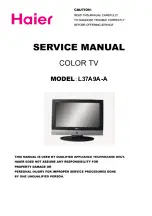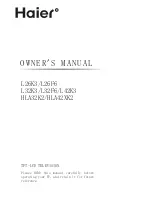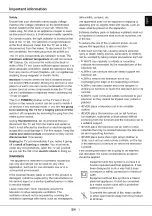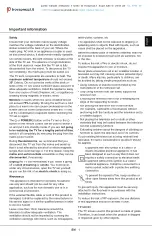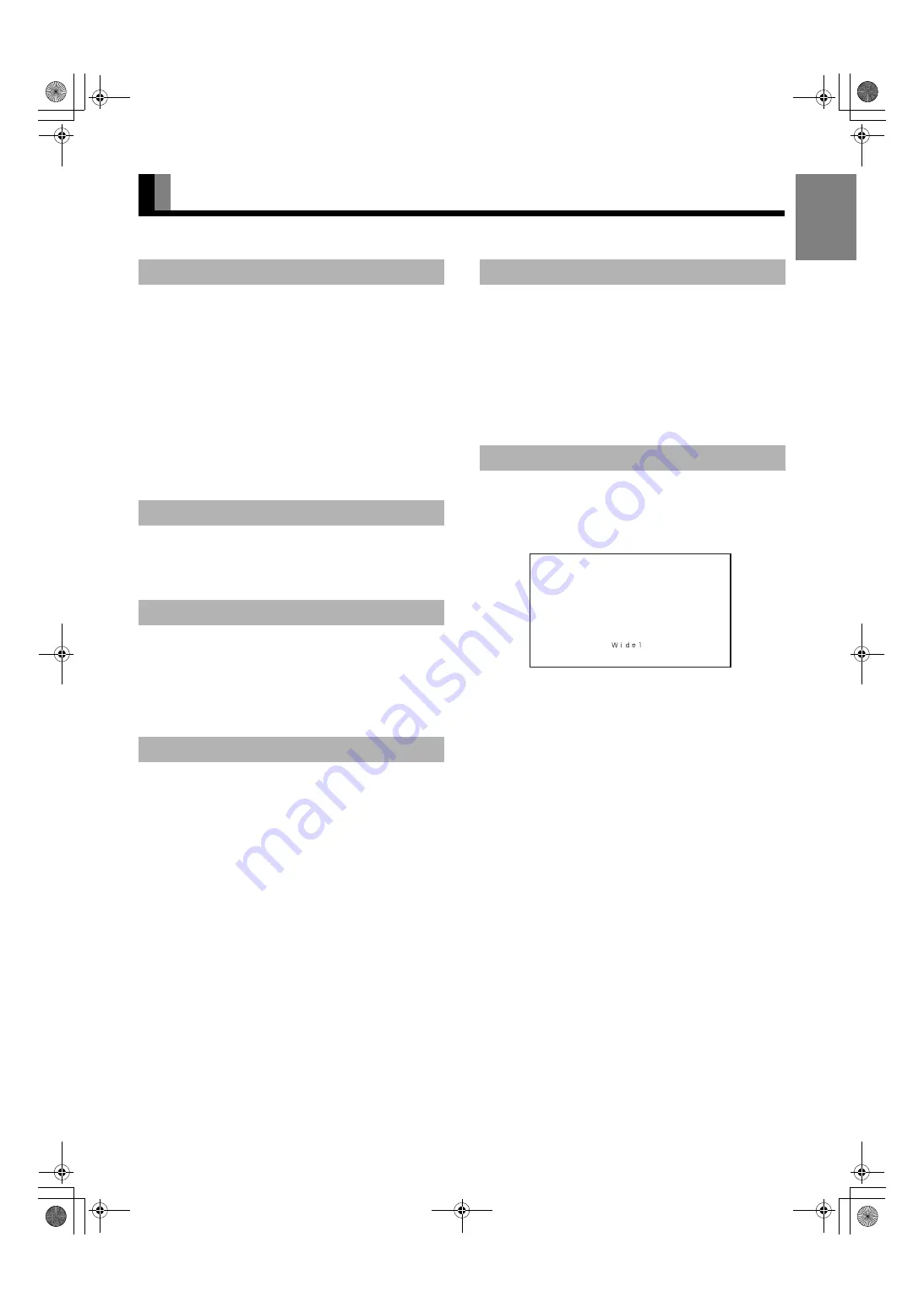
E-23
Engli
sh
OTHER BASIC OPERATIONS
When the NIGHT mode is used when watching TV,
even low volume sounds can be heard clearly. This
function is convenient when watching TV at night.
Press
,
.
Each time this button is pressed, the setting changes as
follows.
$
Normal
$
Night
$
[Normal]
: Normal sound.
[Night]
: Volume is lowered without changing the
sound quality. The volume of sudden loud
sounds, etc. is also suppressed.
Press
Q
.
Press this button to display the Program No., input
mode, and screen size status.
Press
U
.
This can be used to set the time before the power is
turned off (Stand-by state). Each time this button is
pressed, the setting changes as follows.
$
Off
$
30min.
$
60min.
$
90min.
$
120min.
$
Press
R
.
This button can be used to switch the picture mode.
In the picture mode, you can switch between the set
status and the “Fine” mode.
* For the picture mode settings, see “Picture Mode
* While you are watching pictures in Fine mode,
pressing the button does not switch the mode.
Press
S
.
This button can be used to recall the settings of the
picture memories 1 – 8. Each time this button is
pressed, the setting changes as follows.
$
Memory1
$
Memory2
$
Memory3
$
Memory4
$
Memory5
$
Memory6
$
Memory7
$
Memory8
$
* For the picture memory settings, see “Picture
Memory (P. E-31)”.
This function switches among available picture display
modes.
1
Press
!
.
The currently selected mode will appear.
2
Press
!
to select a desired
Screen Size.
Each time you press
!
, a different Screen Size
appears. The sequences used are as follows:
・
Video mode (SD signal)
$
Normal
$
Wide1
$
Wide2
$
Zoom1
$
Zoom2
$
・
Video mode (HD signal)
$
Wide1
$
Wide2
$
True Signal
$
・
RGB mode
$
Normal
$
Wide
$
Zoom
$
* Depending on the type of signal, some aspects may
not be selected.
* When the Wide function is used to select the Zoom1
or Zoom2 mode, it may not be possible to display part
of the menu screen.
Listening mode NIGHT
DISPLAY
OFF TIMER
FINE
Note
• When the WIDE mode is set to “Normal”, and pictures are shown for an extended time, a residual image or “burn-in” may be created. The burn-in
may occur at the boundary where the left and right borders of the picture meet the vertical bars. To reduce the chance of “burn-in” when watching in
the “Normal”, we recommend you set the “Background” to “Light Gray.” (See P. E-37.)
• When a residual image was created, it is reduced by using the “White screen” settings. Note that there may also be cases when it can not be recovered
completely. (See P. E-37.)
• A variety of Screen Sizes are available with this display. Remember that if you select a mode with an aspect ratio (ratio of frame width to frame
height) different from that of the TV program or video media, the pictures will appear differently than if you had selected a mode having the same
aspect ratio.
• Showing a movie or similar premium event at a different aspect ratio from its original one at any event site, restaurant, or bar for profit-making
purposes or for a public audience may constitute a copyright infringement.
• In order to avoid copyright infringement, select a mode having the same aspect ratio as the original picture.
PICTURE MEMORY
WIDE
Wide1 mode
7701_01_E.book 23 ページ 2007年3月22日 木曜日 午後2時38分































